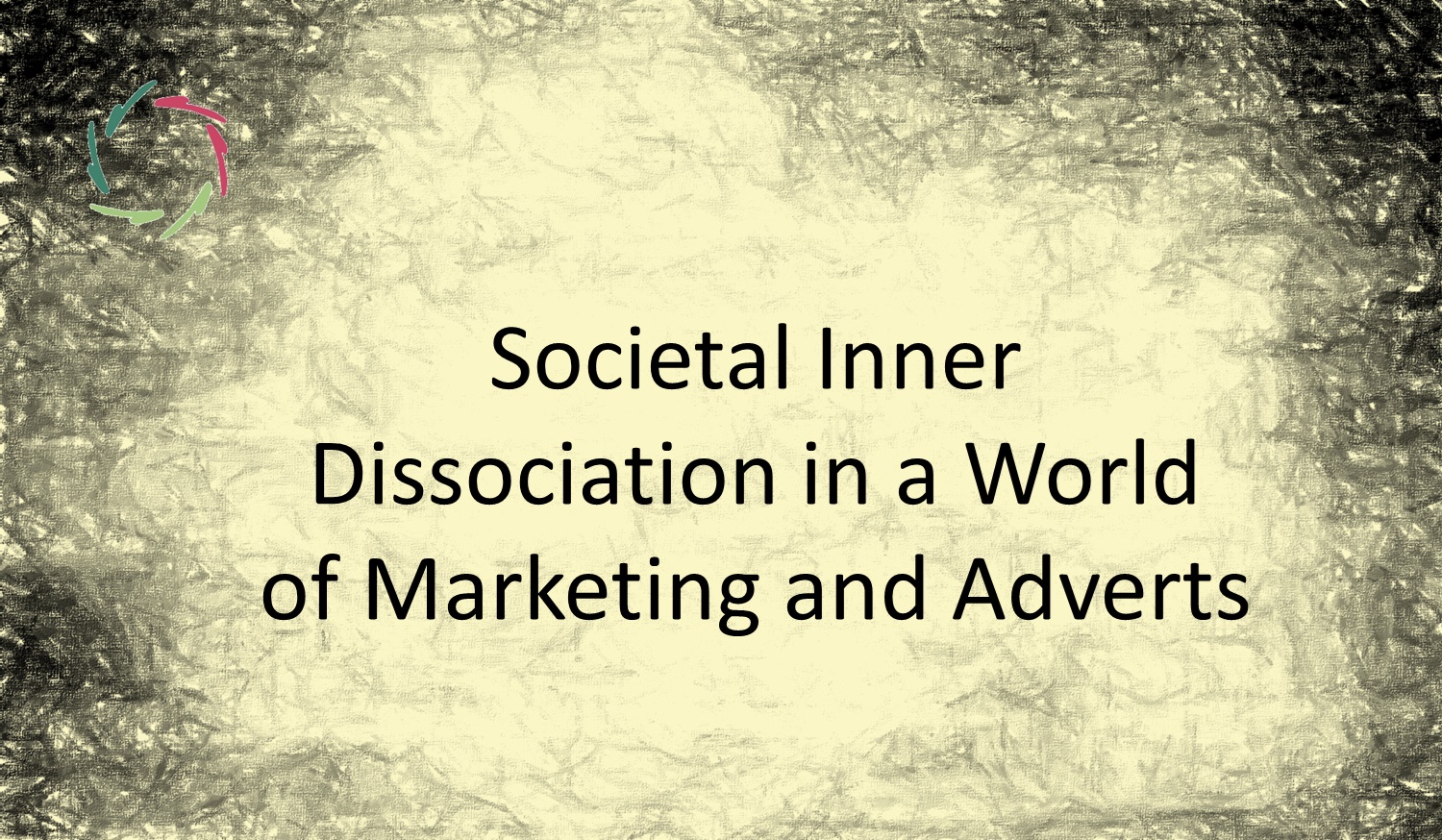Societal Inner Dissociation in a World of Marketing and Adverts

Marketing and advertising, by promoting superficial values and constant consumption, exacerbate Societal Inner Dissociation (SID) through external pressures to conform to consumerist ideals.
The present blog explores how they often contribute to dissociative tendencies within individuals and society at large and how a more conscious and ethical approach to marketing could help reduce SID. This blog is part of the *SID* series. Please read the primary blog of this series for a basic understanding of Societal Inner Dissociation (SID).
Marketing thrives on selling not just products but ideals
Beauty, success, status, and happiness… are often portrayed in a superficial and unattainable manner. These ideals create a persistent narrative that who we are and what we have is never enough. This constant bombardment of superficial values encourages individuals to disconnect from their deeper selves, pushing them to seek fulfillment through material possessions and social approval rather than through inner growth and self-awareness.
The result is a widespread dissociation where individuals measure their worth by external standards, leading to a fragmented sense of identity. Instead of exploring and embracing their true selves, people often find themselves trapped in a cycle of chasing after the next product, trend, or validation, deepening their inner disconnection and perpetuating SID.
Creation of idealized identities
By constantly presenting idealized versions of beauty, success, and lifestyle, marketing compels individuals to compare themselves to these ideals, often leading to feelings of inadequacy and self-doubt. This pressure to conform to an unrealistic standard of perfection fragments the self as people attempt to align their real identities with these manufactured ideals. This fragmentation is a core aspect of SID, where individuals lose touch with their authentic selves, becoming increasingly dissociated as they strive to fit into the idealized molds created by advertising, fostering a sense of alienation.
At the heart of modern marketing is the creation of desire ― a relentless drive to consume more, acquire more, and be more. This consumer culture thrives on dissatisfaction, constantly telling us that happiness and fulfillment are just one purchase away. This leads to a society where personal growth and meaningful connections are often sacrificed for the sake of consumerism.
Impact on society
Marketing and advertising don’t just affect individuals; they also have a profound impact on society as a whole. By promoting competitive consumption and the pursuit of status, these industries contribute to social fragmentation. As individuals strive to outdo one another in the race for material success, the bonds of community and shared purpose weaken. This competition fosters a culture of envy. The result is a fragmented society where people feel increasingly isolated and disconnected from one another, deepening the cycle of SID.
Marketing also plays a significant role in perpetuating economic inequality by creating a consumer culture that is accessible primarily to the affluent. The resulting divide fuels feelings of exclusion and resentment among the less affluent, further alienating them. As economic inequality deepens, so does SID, as those who are economically disadvantaged feel increasingly disconnected from the society that marginalizes them.
The psychological toll of advertising
As individuals compare themselves to the unattainable standards set by advertising, they often experience increased anxiety, depression, and low self-esteem. This psychological distress is a direct consequence of SID. Also, the pressure to conform to these ideals can lead to a persistent sense of failure, further deepening the cycle of dissociation. This often promotes perpetual dissatisfaction, where individuals are never allowed to feel content or fulfilled.
The cycle of consumption creates a temporary sense of satisfaction that quickly fades, leaving individuals in a constant state of wanting more. This perpetual dissatisfaction drives further consumption, deepening the disconnection.
Reimagining marketing for a healthier society
This would prioritize authenticity, transparency, and the promotion of values that contribute to genuine well-being rather than superficial consumption. Ethical advertising could focus on empowering individuals, celebrating diversity, and encouraging self-acceptance rather than perpetuating unrealistic ideals. Brands that adopt a conscious approach to marketing could help reduce SID by promoting messages that resonate with individuals’ deeper needs and values.
Governments and corporations also have a role to play in reimagining the advertising landscape. Regulations that limit misleading or harmful advertising practices, combined with corporate responsibility initiatives that prioritize the well-being of consumers, can help create a more ethical and mindful advertising environment.
Lisa can play a pivotal role in guiding consumers and advertisers toward more conscious interactions with marketing.
By helping individuals recognize the dissociative patterns promoted by advertising and offering tools for deeper self-awareness, Lisa can contribute to a shift towards a healthier, more connected society. Through workshops, coaching, and public discourse, Lisa can influence how advertising is created and consumed, promoting messages that align with genuine well-being rather than superficial success.


